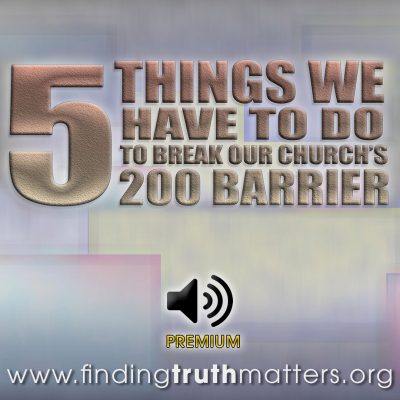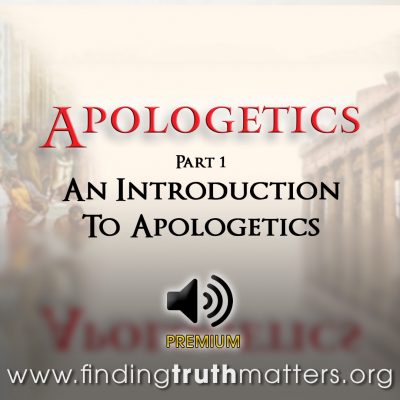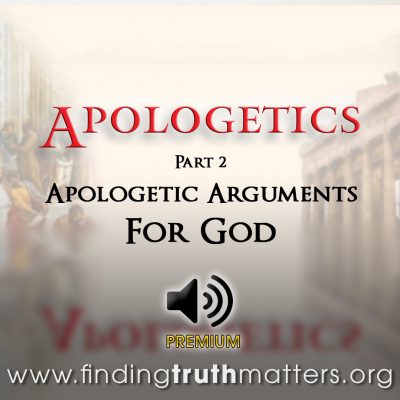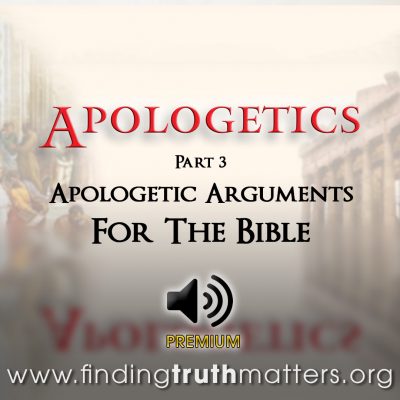home > articles > How Should Christians Think About Earthquakes?

by Dr. Andrew Corbett 31st March 2011
New Zealand, Japan, Chile, Croatia, Italy, and Borneo are countries which are subject to large earthquakes and have led many Christians to speculate about what God might be possibly saying through these catastrophes. Other Christians are struggling with interpreting these same events from the perspective of trying to understand how a God of love and power could allow such massive destruction and loss of human life?
WHEN IS AN EARTHQUAKE THE JUDGMENT OF GOD?
The Bible reveals that God uses phenomena such as earthquakes to speak, discipline and even punish. This is deduced from how earthquakes are referred to through out the Bible. For example, there was an earthquake –
- coinciding with the death of Christ (Matt. 27:54);
- causing the release of Paul and Silas from prison (Acts 16:26)
- resulting in the destruction of the temple in A.D. 70 (Rev. 6:12)
Some people speculate that it was an earthquake which destroyed the Tower of Babel (Genesis 11), which would make this particular account the first reference to an earthquake in the Bible, but it is more than probable that it was not an earthquake – for reasons which should be clearer shortly.
God declares through various prophets that He would use earthquakes as an instrument of His correction upon His people (Isaiah 29:6; Amos 1:1; Zechariah 14:5). But this is no small point: the only Biblical references to God using earthquakes in this way was to teach His people something (not Gentiles).
Ah, Ariel, Ariel, the city where David encamped!
Add year to year;
let the feasts run their round…
you will be visited by the LORD of hosts
with thunder and with earthquake and great noise,
with whirlwind and tempest, and the flame of a devouring fire.
Isaiah 29:1, 6
But the Bible doesn’t just describe earthquakes as divine instruments of direct communication (whether that be judgment, punishment or correction). They are part of the natural order which God has ordained to sustain life on earth (earthquakes partly release a build up of tension in the earth tectonic plates). God actually says that not every natural disaster or disturbance is Him speaking or directly acting. For example-
And he said, “Go out and stand on the mount before the LORD.” And behold, the LORD passed by, and a great and strong wind tore the mountains and broke in pieces the rocks before the LORD, but the LORD was not in the wind. And after the wind an earthquake, but the LORD was not in the earthquake.
First Kings 19:11
ABOUT NATIONAL JUDGMENTS
It appears Biblically that the only nation God held accountable under the Older Covenant was Israel (and later Judah). All of God’s disciplinary earthquakes during the Older Covenant were used to correct or discipline His people. Some have pointed to the possibility that when Jonah arrived in Nineveh, their willingness to receive his message was partly due to them experiencing a massive earthquake and solar eclipse just prior to his arrival. This may be the case, but notice that the actual result of this event. It served as a sign and wonder to the people of Nineveh to confirm to them Jonah’s preaching. It was not referred to in the Book of Jonah and neither did Jonah threaten that God would send another as His way of punishing them for their sin and wickedness (although he probably wished that he could have!).
God only dealt with nations during the Old Covenant period in a way which had a bearing on His covenant with Israel. That is, if a foreign nation oppressed, attacked, or exiled His people, God would occasionally intervene. We only have to think of God’s dealings with Egypt in rescuing His people in the Exodus to see this. But notice that God’s punitive dealings with a nation was only because they touched His people. Generally, God only consistently dealt in a punitive or disciplinary way with one nation under the Old Covenant: Israel.
In the New Testament times we read of Christ foretelling that there would be earthquakes leading up to the destruction of the Temple and the doing away with of the Old Covenant elements (Temple, priesthood, sacrifices).
There will be great earthquakes, and in various places famines and pestilences. And there will be terrors and great signs from heaven.
Luke 21:11
The Jewish historian who lived during this time of which Christ foretold, wrote-
(286) for there broke out a prodigious storm in the night, with the utmost violence, and very strong winds, with the largest showers of rain, with continual lightnings, terrible thunderings, and amazing concussions and bellowings of the earth, that was in an earthquake. (287) These things were a manifest indication that some destruction was coming upon men, when the system of the world was put into this disorder; and anyone would guess that these wonders foreshowed some grand calamities that were coming.
Josephus, Flavius, The Works of Josephus, Wars of the Jews, Book 4 Chapter 4
Outside of Israel, we read of God using an earthquake to coincide with Paul and Silas’s release from a Philippian jail (Acts 16:26). But again notice the redemptive pattern continuing into the New Covenant era – God used an earthquake as a sign and a wonder to point people to Christ through the preaching of His servants. As a result of this earthquake a jailer and his family were saved and a church was planted! Yet, at no time did Paul claim that this was God “punishing” the people of Macedonia.
- Therefore, we see Biblically that-
- Earthquakes today may be a sign and wonder to point people to a saving knowledge of Jesus Christ.
- Earthquakes are a part of the natural order designed by God to sustain life on our planet.
- Earthquakes may also be a part of the “groaning” of nature referred to Romans 8 which result in “natural disasters” that cause human groaning.
- Earthquakes can be used by God to bring about great good even from the midst of terrible tragedy (such as was probably the case in Nineveh during the time of Jonah).
HISTORICALLY
Arguably, the earthquake of A.D. 614, which destroyed parts of Ephesus, was the fulfilment of a warning Christ gave the church there (recorded in Revelation 2). At that time, that church in Ephesus could trace its roots back to the Apostle Paul and later the Apostle John, but the earthquake ended this Ephesian church (shortly after this time Ephesus became an Islamic stronghold).
This possibly raises two issues about how God may intend for earthquakes to be interpreted today. Firstly, they were warned. This is no small point either.
For the Lord GOD does nothing
without revealing His secret
to His servants the prophets.
Amos 3:7
If we take Christ’s warning to the Ephesian Church that he would come and remove their candle stick as a warning that there would be consequences for not living out an appropriate corporate witness, then we see the principle of Amos 3:7 enacted. Prophetic warning of judgment through natural means is an established pattern in the Old Testament. It would hardly be less so under the New Covenant.
Secondly, this possible example of how God may have used an earthquake to discipline, was for the preservation of His New Covenant people: the Church. When churches cease to be an appropriate witness for Christ He still uses whatever means necessary to “remove their candlestick.” Individually, the Apostle Paul told the Corinthians that, “some had fallen asleep” because they had failed to discern the Lord’s Body. Not all church closures are a bad thing, they may even be “a God thing.”
In Luke 13 Jesus is quizzed about the disaster which resulted from the Tower of Siloam falling on 18 worshipers. Human nature tends to interpret such events as ‘karma’ – you get what you deserve. When Christ was asked about this, He corrected these assumptions and stated that if this was God judging “sinners” then we would all have to be judged in a similar way! Us modern-day pharisees would do well to remember that it’s not just the victims of natural disasters who are sinners – we all are! It’s only God’s prevenient (generally available, as distinct from electing) grace that enables any of us to even be alive!
It should not take a disaster for people to consider their spiritual condition before God and their subsequent eternal destiny, but it is often such disasters which do result in this.
It is not natural disasters which reveal how God feels about sin and wickedness – it’s the Cross!
One of the sad aspects to human nature is our self-deceit about our own invincibility. It is perhaps this unfortunate trait which leads us to build heavily populated cities on earthquake-likely fault-lines, monsoon corridors, bush-fire fuel zones, and cyclically flooding riverside plains – places that God may have never meant for us to settle. When these God-ordained dynamic parts of the world do what God has destined for them to do, people usually die. The wisdom, or lack of, this practice needs to be seriously challenged. In the meantime, the Christian response to those unfortunate souls affected by such disasters is not one of finger-wagging judgment, but one of outstretched arms of compassion.
-
Sale!

5 Things We Need To Do To Break Our Church’s 200 Barrier, Premium Audio
Original price was: $1.75.$0.95Current price is: $0.95. -
Sale!

A Morning With Izaak Walton – The Compleat Man, Premium Audio
Original price was: $1.75.$1.25Current price is: $1.25. -
Sale!

Apologetics Part 1 – Introduction To Apologetics, Premium Audio
Original price was: $1.75.$0.95Current price is: $0.95. -
Sale!

Apologetics Part 2 – The Apologetic Arguments For God, Premium Audio
Original price was: $1.75.$0.95Current price is: $0.95. -
Sale!

Apologetics Part 3 – The Apologetic Arguments For The Bible, Premium Audio
Original price was: $1.75.$0.95Current price is: $0.95.









































0 Comments